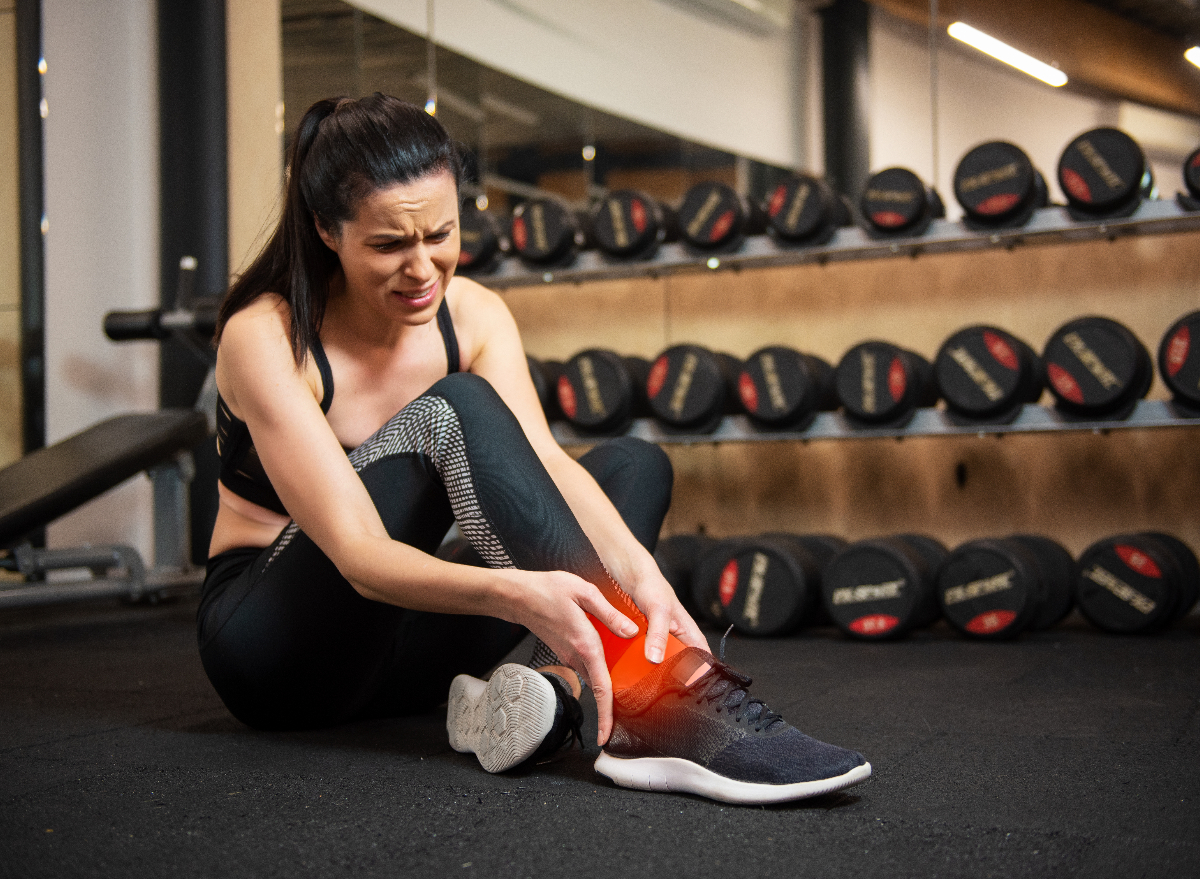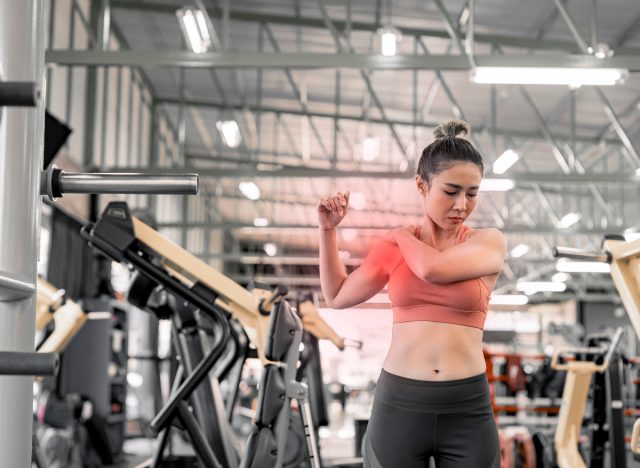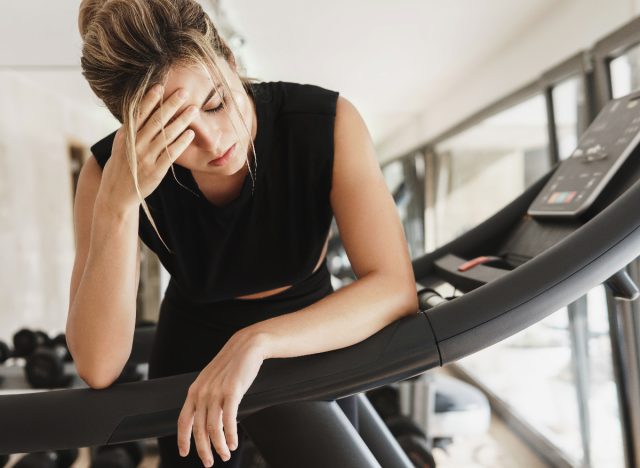Mistakes You’re Making at the Gym That Are Rapidly Aging Your Body

Are you a hardcore gym enthusiast? If so, you’ve probably established quite a few habits when it comes to your workout time. It’s important to assess your routine to make sure none of your habits are “bad.” If you’re not doing everything properly, you could be hindering your progress or hurting your health. There are some gym mistakes that may be rapidly aging your body to be aware of. We chatted with Dr. Mike Bohl, the Director of Medical Content & Education at Ro and a certified personal trainer, who shares everything you need to steer clear of.
You’re not practicing good posture and are putting yourself at risk of injury.

Let’s start with the biggest common mistakes some individuals make when working out. Dr. Bohl points out that not maintaining appropriate posture or utilizing proper technique are biggies. You put yourself at a higher risk of injury when you don’t practice good posture. If you repeatedly do your workout incorrectly or with bad posture, you can strain your joints and muscles. This can result in inflammation and pain, making you feel older than you actually are.
Be mindful of working out opposite muscle groups, meaning muscles on the same joint that perform different tasks. An example of this would be your triceps and biceps. This will ensure you don’t put yourself at risk of muscle imbalances. When opposite muscle groups are unequal in activity or strength, you can endure pain or limited mobility. These imbalances negatively impact your posture, which could cause shoulders that are hunched over.
A little hint to help maintain good posture is thinking of five kinetic chain checkpoints. The checkpoints include your ankles and feet, which should be parallel to each other, making them straight; both knees, which should line up with your toes; your lumbar spine and pelvis, which shouldn’t be tilted, but in a neutral position; your shoulders, which should not be curved; and your head, which should remain neutral.
Related: Bad Fitness Habits That Are Rapidly Aging Your Body, Trainer Reveals
You’re not stretching it out before workouts.

Don’t forget to stretch! Dr. Bohl explains this is another huge faux pas that can rapidly age your body. He tells us, “Dynamic stretching at the beginning of an exercise is important to get the muscles warmed up, and static stretching at the end of an exercise is important to return muscles to their resting length,” adding, “Not stretching can increase the risk of injury and also increases the risk of developing muscular imbalances.”
Related: What Walking Every Day Does to Your Body, Expert Reveals
You’re overtraining and not resting enough.

It’s important to rest and not overtrain. If you don’t give your body enough time to rest, this can result in lower functionality, fatigue, and even worse, the muscles in your body can break down rather than build up. Needless to say, resting is just as important as working out itself! Dr. Bohl tells us, “It’s important for gym goers to rest between sets as well as rest between training days to give the muscles enough time to recover.” Take care of your body, and it will take care of you as you grow older!
You’re doing the same workout without enough variation.

Another bad habit that you shouldn’t be doing is keeping the same workout routine. It’s important to switch things up, because a workout shouldn’t only be all about lifting weights or performing cardio. “There are many different types of exercises, including stretching, plyometrics, core training, and speed, agility, and quickness training. Varying your routine and including other elements of exercise besides just cardio and weightlifting is a great way to maintain functionality even as you age,” Dr. Bohl says.








